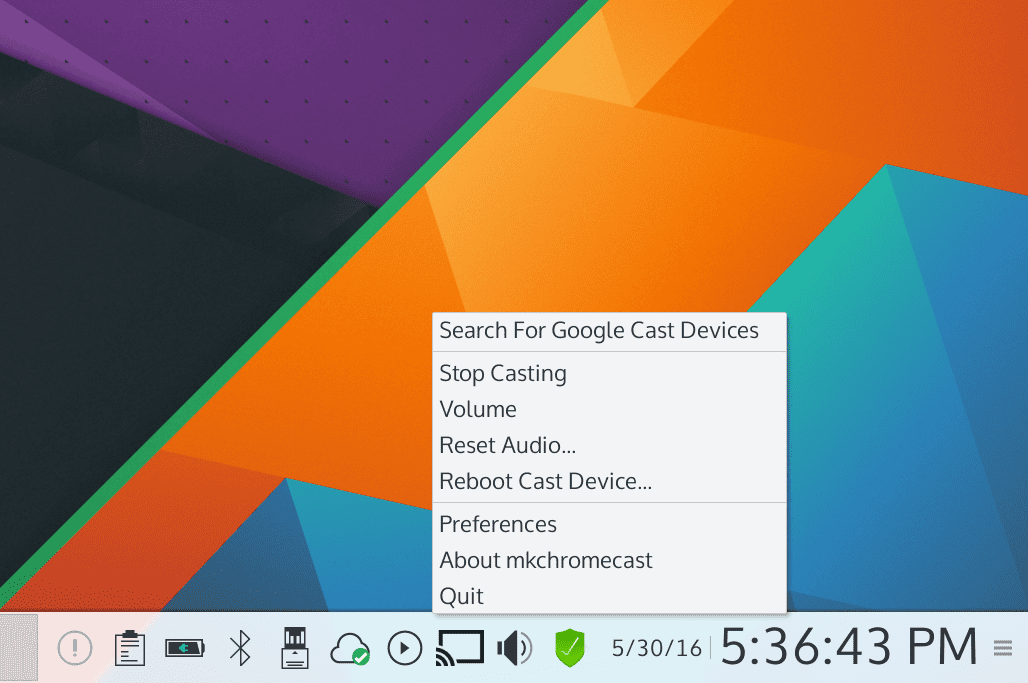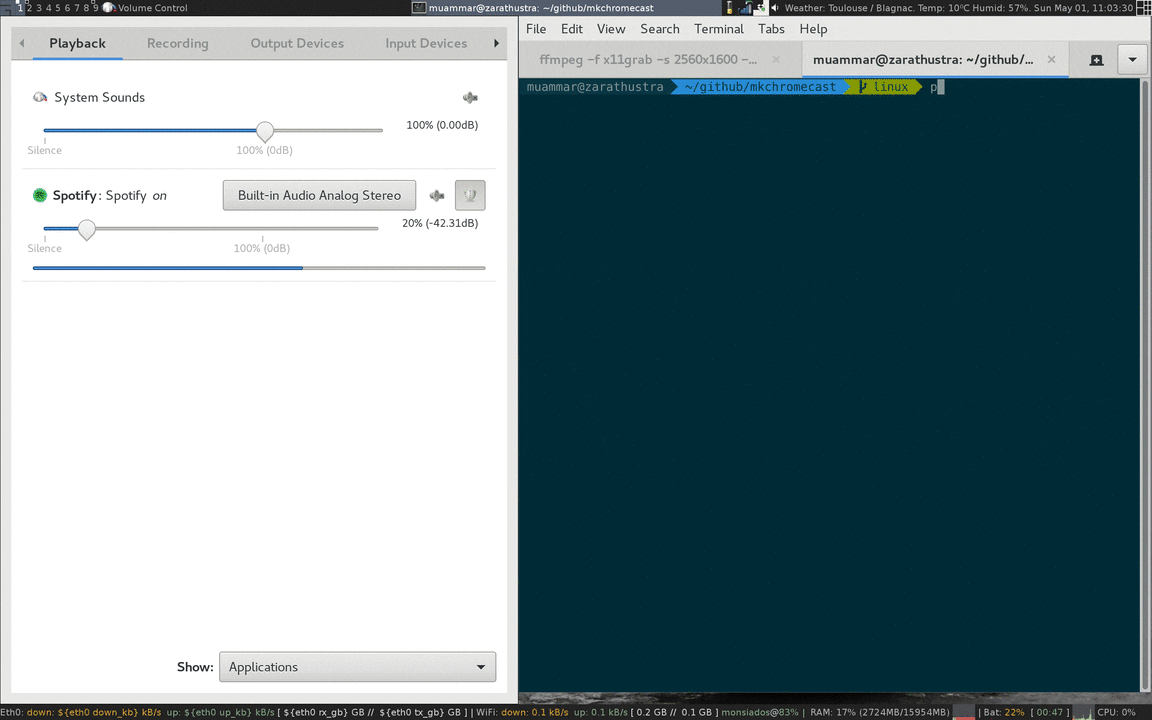chromecast It is becoming the most used device to transmit to our TV what is being reproduced on our computer, mobile or even in the browser. Linux users do not have a native functionality that allows us cast Linux audio and video to Chromecast, so we must opt for applications like mkchromecast, which allows us to easily transmit the content that we want to view on our television using this device.
What is the Chromecast?
It is an HDMI device similar to a USB drive that is connected to the TV in order to capture the signal from the multimedia devices that are connected in the Wi-Fi network. With this tool we can view the multimedia content that is sent from our computers, mobile phones and even the web browser.
What is mkchromecast?
It is an open source tool, written in Python and what do you use node.js, ffmpego avconv to get the audio and video from Linux to Chromecast.
mkchromecast send multimedia to our Chromecast without losing audio and video quality, it is also compatible with multiple streams, high-quality audio resolution 24-bit / 96kHz, direct streaming from YouTube, among other features present in modern Chromecast models.
The tool is equipped with an excellent usage panel, which is displayed in our inbox. Similarly, the installation of mkchromecast it's straightforward on almost all Linux distros.
How to install and use mkchromecast?
In any Linux distro we can install mkchromecast directly from its source code hosted on Github, for this we must perform the following steps:
- Clone the official repository of the tool, or, failing that, download the stable version of the application from here.
$ git clone https://github.com/muammar/mkchromecast.git- We go to the newly cloned folder and proceed to execute pip install with the file
requirements.txtwhich contains all the necessary dependencies for the tool to work properly (in some cases the tool must be run with sudo):
$ cd mkchromecast/
$ pip install -r requirements.txtDebia, Ubuntu and derivative users can install the tool directly from the official repositories, just run the following command from the console:
sudo apt-get install mkchromecastFor their part, Arch Linux users and derivatives can use the package available in the AUR repository
yaourt -S mkchromecast-git
We can visualize the behavior and use of this application in detail in the following gif distributed by the development team. We can also see the official usage tutorials from here..
Cast from Youtube to Chromecast
Particularly something that I like about this application is that we can directly transmit a YouTube video from the console to our chromecast, for this we must execute the following command:
python mkchromecast.py -y https://www.youtube.com/watch\?v\=NVvAJhZVBTWithout a doubt, a tool that will allow us to send our multimedia from Linux to Chromecast in an easy, fast way and without losing quality.

I use this tool a lot for chromecast, it allows several improvements over this one. you can send any video file
https://github.com/xat/castnow
Castnow is only for sending video files, but not for sending audio in real time.
Great @Lagarto, thanks.
Multimedia is invariable in the plural. You should never say "multimedia."
https://es.m.wiktionary.org/wiki/multimedia
Thank you very much for your clarification dear, I have corrected and increased my word thanks to your consideration
I've been looking for something similar for days. Thank you !!
Interesting. I will try it, without a doubt.
The question is how to configure the Firewall. For Chrome, for example, I have not managed to configure it and it only sends content (from YouTube or whatever) with the firewall disabled.
Does anyone know how to configure it?
If you are using Ubuntu, here you can read how https://github.com/muammar/mkchromecast/wiki/FAQ#i-am-using-ubuntu-firewall-how-can-i-use-mkchromecast-with-it.
Hello Muanmar.
Indeed, I use Ubuntu (sorry, but I did not realize it to say so) and, from now on, I can also use the Chromecast without having to disable the Firewall.
Many thanks!!!
Hello Muanmar
I answer again, to tell you that after opening port 5000, I rebooted just in case, opened Chrome and got to see the Chromecast, that's why I thought the port was valid at the system level and that any application could send content to Chromecast once open.
But the next time I tried it it no longer connected. It seems that that first time the firewall took a little longer to start up, and that's why it worked the first time.
So I understand that port 5000 is only for mkchromecast, right?
Yes, I'm sorry. I think I read wrong. But in theory, there should be no problem having the firewall and using chrome. I have not tested, because I use Debian. And yes, port 5000 is needed only for mkchromecast.
It is understood.
Thank you, Muammar.
Hello everyone.
Regarding the installation of mkchromecast from the official Ubuntu repositories, it should be noted that the package is not in the Ubuntu 16.04 repositories. From what I have seen, it seems that it is only available as of Ubuntu 16.10.
Greetings.
and in gentoo distros ??
I cannot find the solution to nonexistence on my Sabayon Linux.